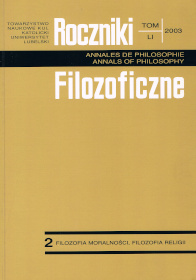Theology in an Age of Disunified Science
Abstract
Prior to the twentieth century, religious thinkers developed their understandings of the relationship between natural science and theology in contexts in which natural science presented a theoretically unified account of nature − first, for example, the Aristotelian account of nature that so powerfully influenced the work of Saint Thomas Aquinas; and later the Newtonian account of nature that influenced numerous directions in religious thought following the seventeenth century. The twentieth century, and now the twenty-first century has come to accept understandings of physical nature without a requirement of theoretical unification. This lack of theoretical unification within the natural sciences must lead religious thinkers to engage their theologies with natural science in a manner more piece-meal than in earlier times. This presents both opportunities and challenges for theological development. The nominalist tradition may be in this context seen as a source for this development.
Copyright (c) 2003 Roczniki Filozoficzne

This work is licensed under a Creative Commons Attribution-NonCommercial-NoDerivatives 4.0 International License.





